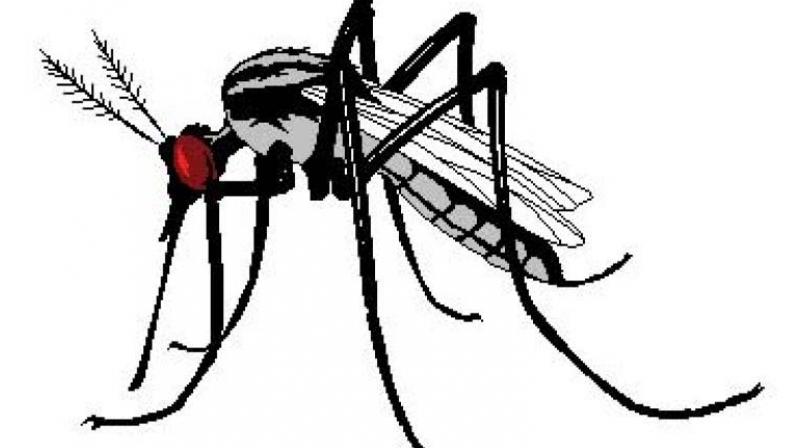Bengaluru in grip of dengue
Bengaluru reporting highest number of dengue cases in state.

Bengaluru: According to the State health department, 10,408 dengue positive cases have been reported across all districts in the state. Shockingly, cases within the BBMP limits are the highest at 3,642. But these numbers do not exactly depict the real disease burden. “We have been seeing at least 30-35 dengue cases every day," informed Dr Shankar Prasad, Medical Director, St Philomena's Hospital, who stresses that luckily, the hospital has not seen any dengue shock are hemorrhage cases. “We see 15-20 dengue cases and many need admission," says Dr Asha Benakappa, Director, Indira Gandhi Institute of Child Health (IGICH).
“To put it roughly, out of ten patients, six have dengue or low platelet count. Both are equally worrisome. The other major concern is that almost all hospitals are running full and there is also a platelet shortage. With the increased hospital stay, the financial burden is also high on the patients. Prevention and awareness is crucial during this season," informed Dr Murali, Chief of Casualty, CMH Hospital.
“There have been a lot of admissions in our hospital. Every day, we witness 15-20 admissions and they are more than the OPD cases. Overall, some 70-80 dengue cases, including the follow-ups, are being treated,” said Dr Shrinivasa, professor and HoD, paediatric unit at KIMS. “Mild rains are also the biggest reason for freshwater collection and parents should be cautious. Dengue is quite rampant this season," said Dr Shrinivasa.
Of nearly 150 fever cases at Jayanagar General Hospital every day, some 30 are of suspected dengue. “Nearly half of them are positive for dengue. People should not allow fresh water to collect at their houses our compound for more than five days as it takes seven days for the larvae to develop and only one ounce of water is enough. People have to be made aware of the danger and high-risk groups, including children, pregnant women and senior citizens, should take extra care,” advised Dr B.S. Lokesh, Medical Superintendent, Jayanagar General Hospital.
The growing numbers warrant the need for better awareness and surveillance, but also proper methods to reduce the disease burden. “The government should look into the reasons behind people choosing private hospitals. This is mainly because of timely treatment and now, private hospitals are facing shortage of beds. A method should be devised where the public can also opt for public hospitals, which reduces the disease burden on private hospitals," said Dr Murali.
What should BBMP do
- BBMP should ensure fogging activities at high risk areas.
- Proper surveillance activities would go a long way in arresting the spread.
- Public education and awareness camps are crucial.
- Ensure door-to-door campaigns.
- Subsidise Eliza test and ensure supply of platelets for the poor
Keep surroundings clean, stay healthy
Dr. Vinod Kumar Reddy,Consultant – Internal Medicine, Columbia Asia Hospital, Whitefield.
Points out some of the precautionary measures during monsoon season:
Eat right:
Avoid outside food as well as junk food. Eat fresh fruits and vegetables to boost immunity. To get rid of germs, make sure that you properly wash leafy vegetables in salt water before cooking.
Drink purified water:
Always carry a water bottle and avoid drinking from outside tap water. This will help prevent water-borne diseases.
Avoid getting drenched:
Keep an umbrella or a raincoat to avoid getting drenched in rains as cold water can easily lead to fever and cold.
Avoid touching eyes:
Refrain from touching eyes as this can lead to eye infections like dry eyes, stye, conjunctivitis or corneal ulcers.
Wash hands frequently:
Make sure that you wash hands frequently or use a sanitiser to keep hands and work desk clean. This is important as most of the infections spreads due to dirty hands.
Wear full sleeve clothes:
Wearing full sleeve clothes helps avoid mosquito bites during daylight.
Use mosquito repellent:
One of the most important precautionary measures is to apply mosquito repellent before leaving home for work.
Keep surroundings clean:
Cleanliness is essential, especially during monsoon, to avoid infections and diseases. Also, don’t let water stagnate in your surroundings to prevent mosquito breeding.
Make house mosquito proof:
Keep windows and doors closed or use mosquito nets on the windows to avoid mosquitoes entering the house.
Keep clear of damp indoors:
For people suffering with breathing problems, damp walls can increase the risk during monsoons as dampness encourages fungus growth. Make sure to clear damp walls this season.

